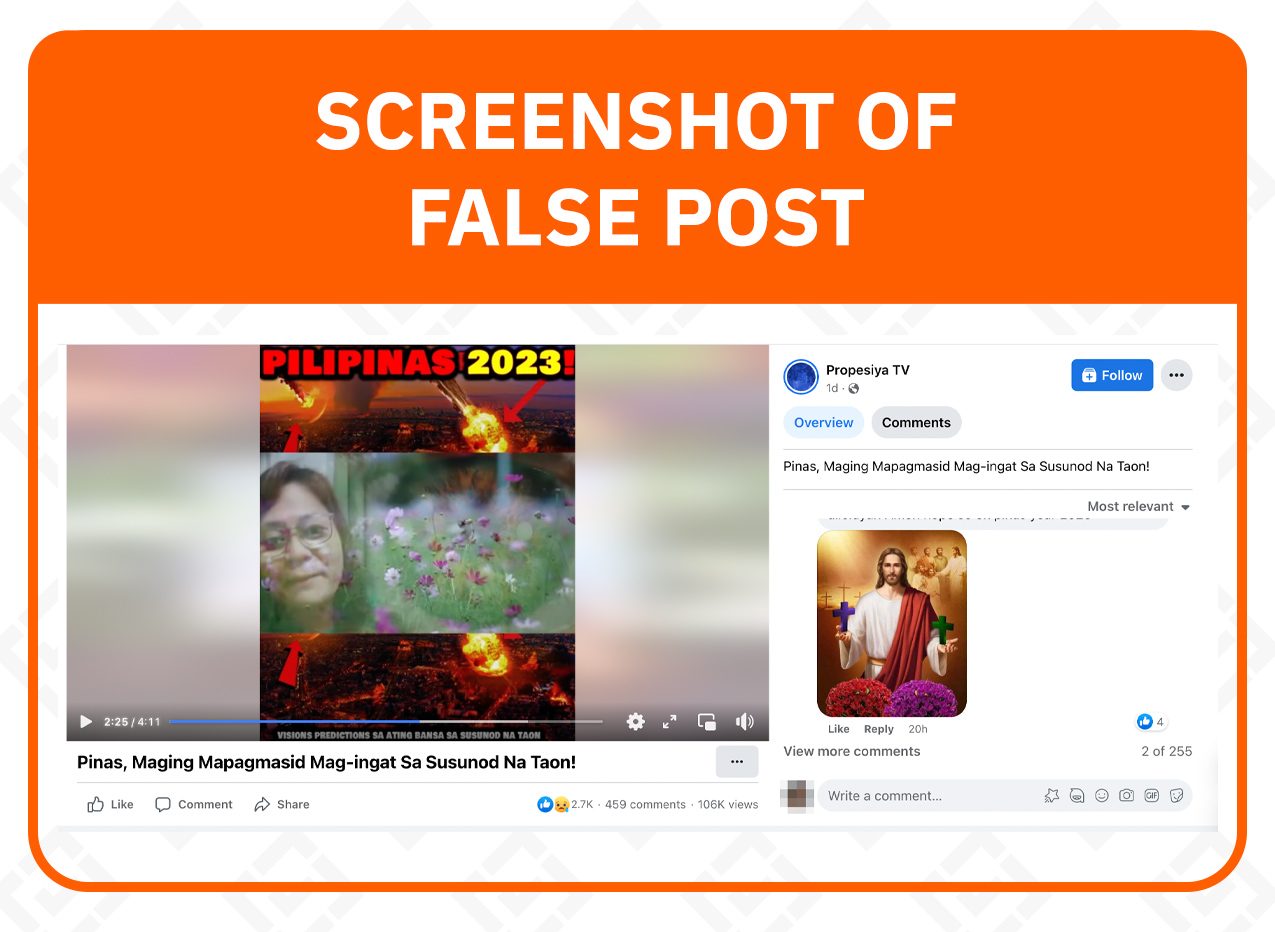SUMMARY
This is AI generated summarization, which may have errors. For context, always refer to the full article.

Claim: In December, the seventh meteor to crash in the Philippines destroyed a house in Quezon.
The erroneous claim was made after making different predictions about different calamities supposedly to befall the Philippines in 2023. In particular, the claim was made to give credence to the prediction that it will rain fire in the Philippines in 2023.
Rating: FALSE
Why we fact-checked this: The fear-mongering prediction video posted by Facebook user “Propesiya TV” making the false claim has over 2,700 reactions, 459 comments, and 106,000 views.

The bottom line: The seventh Philippine meteor officially registered in the Meteoritical Bulletin Database (MBD) crashed in Quirino province, not Quezon province. According to a December 14 report by ABS-CBN News, the Ponggo meteor (named after the village where it was found) hit the roof of a house in Nagtipunan town last May 20.
Damaged not destroyed: The 2.4-kilogram meteor crashed through the two-layer roof of the house, smashed a plastic potted plant, then created a palm-sized crater on the concrete floor. While it did damage the house, it did not destroy it. No one was reported to have been harmed or injured in the incident.
Meteors in the Philippines: Based on the MBD, there have been seven recorded meteors to land in the country from 1859 to 2022. The biggest recorded Philippine meteor weighing 888.6 kg was the Bondoc meteor (again, named after the location in which it was found) in 1956. Based on a report by the Manila Bulletin, the Bondoc meteor was found in a remote jungle. – Pola Regalario/Rappler.com
Keep us aware of suspicious Facebook pages, groups, accounts, websites, articles, or photos in your network by contacting us at factcheck@rappler.com. You may also report dubious claims to #FactsFirstPH tipline by messaging Rappler on Facebook or Newsbreak via Twitter direct message. You may also report through our Viber fact check chatbot. Let us battle disinformation one Fact Check at a time.
Add a comment
How does this make you feel?










There are no comments yet. Add your comment to start the conversation.